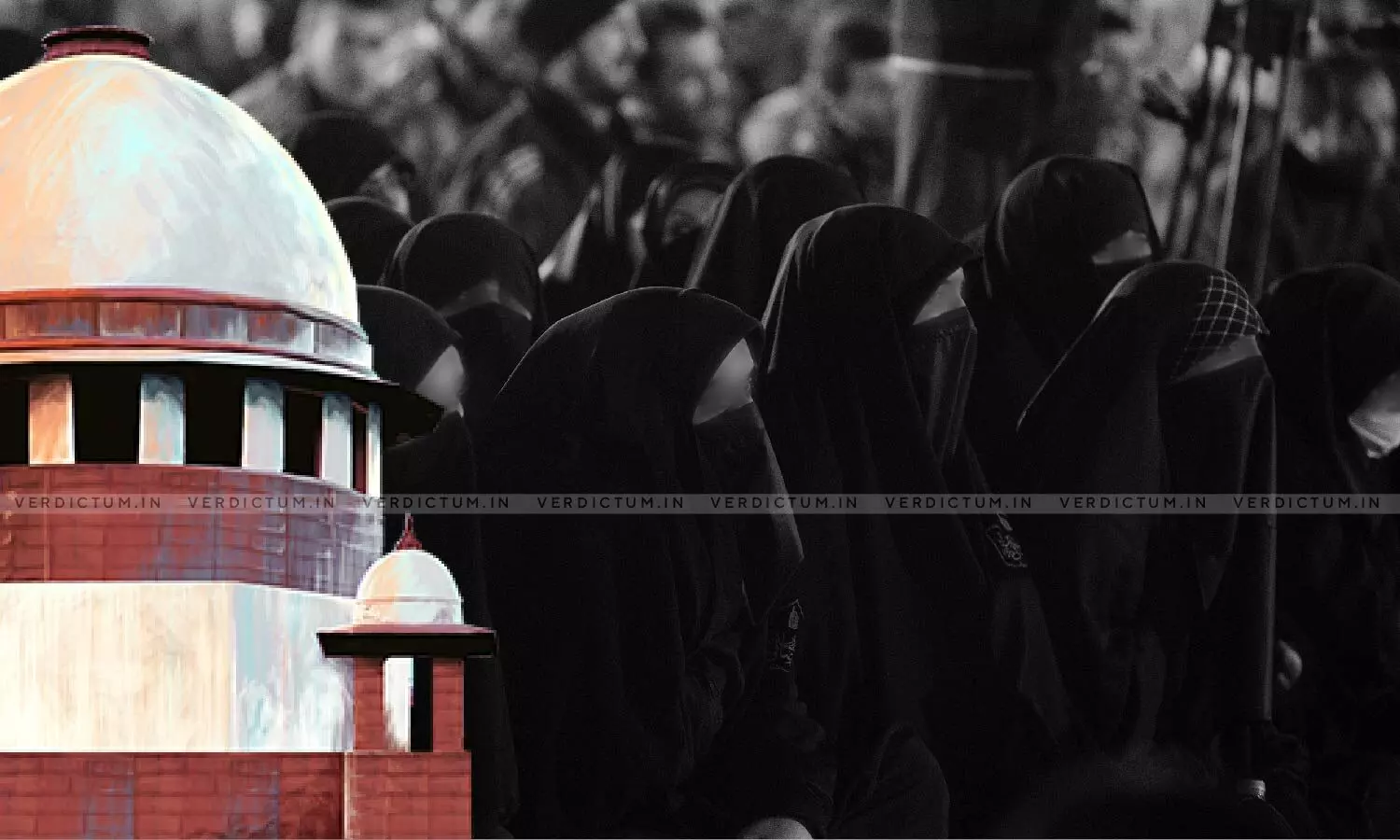
Supreme Court To Hear On July 12 Plea By Non-Believer Muslim Woman Seeking Choice To Opt Out Of Sharia Law
 |
|The Supreme Court, on Monday, issued notice in a Writ Petition filed by a Kerala-based woman who was born into Islam but is now identifying as a non-believer, and contends that she should be governed by secular statutes instead of Sharia law.
After hearing the submissions of Advocate Prashant Padmanabhan appearing for the Petitioner, the Bench of Chief Justice DY Chandrachud, Justice JB Pardiwala, and Justice Manoj Misra issued notice in the matter and scheduled it for further hearing on July 12.
"Issue notice, returnable in the second week of July 2024," the Bench ordered.
The plea filed by Safiya PM, aims to secure a declaration from the 'prescribed authority' under the Muslim Personal Law (Shariat) Application Act, 1937, allowing non-believers to opt out of Sharia law. The Writ Petition further seeks a declaration that non-believer Muslims should be governed by the provisions of the Indian Succession Act, 1925, in matters of intestate and testamentary succession for their lineal descendants.
“Persons who do not want to be governed by the Muslim Personal Law must be allowed to be governed by the secular law of the country, viz, the Indian Succession Act, 1925 both in the case of intestate and testamentary succession,” the plea said.
The Petition highlights the broader implications of the issue and urges the Court's intervention, particularly in light of the pending case SLP (Civil) No. 9546 of 2016, which addresses succession among Muslim women. Safiya, born a Muslim woman to a non-practising Muslim father, faces challenges in protecting her civil rights. She serves as the General Secretary of Ex-Muslims of Kerala.
Under the current legal framework, individuals born as Muslims are subject to the Muslim Personal Law (Shariat) Application Act, 1937, which poses complications for those wishing to renounce their faith. Sharia law dictates that apostates forfeit inheritance rights, leading to concerns for the petitioner and her lineal descendants, particularly her daughter.
The petitioner seeks a declaration that she should not be governed by Muslim Personal Law for any matters covered under the Act, advocating for the application of secular laws such as the Indian Succession Act, 1925. However, existing statutes do not provide a mechanism for obtaining such a declaration, creating a legislative gap that requires judicial interpretation to address. She argues that the absence of legal protection undermines her fundamental rights under Article 25, rendering them meaningless.
“The petitioner wishes to get a declaration that she shall not be governed by Muslim Personal Law for any of the matters listed in Sections 2 or 3 of the Muslim Personal Law [Shariat] Application Act, 1937, but there is no provision either in the Act or in the Rules wherein she can obtain such a certificate. There is a clear vacuum in the statute which can be plugged by judicial interpretation,” the plea reads.
The Petitioner prays, "This Hon’ble Court may be pleased to declare that the persons who do not want to be governed by the Muslim Personal Law (Shariat) Application Act, 1937, must be allowed to be governed by the secular law of the country, viz, the Indian Succession Act, 1925 both in the case of intestate and testamentary succession."
Cause Title: Safiya P.M. v. Union of India & Anr. (Writ Petition (Civil) No.135/2024)
Appearance:-
Petitioner: Advocates Prashant Padmanabhan (AOR), Savitha S.
Click here to read/download Writ Petition
Click here to read/download the Order